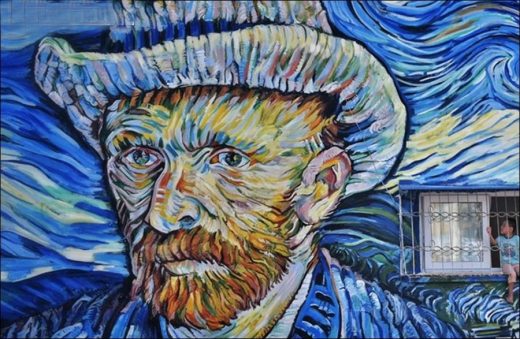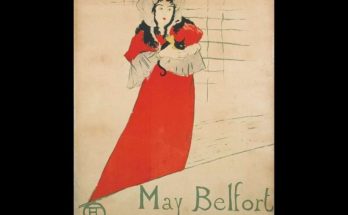At the end of one of our previous articles, “the connection between creativity and mental illness was called the “Sylvia Plath Effect”. “Then it became necessary to talk about Plath as well,” I said. Let’s do it then. More precisely, let’s try to understand this “human condition” that is named after Plath rather than her. Because the claim that there is a connection between creativity and mental illness goes back to Aristotle, who is considered the first person to realize or express this. As you know, Aristotle wrote that great artists and philosophers are “prone to melancholy.”
creativity, mental illness, vincent van gogh, sylvia plath, aristotle, great artists, great philosophers, greek philosophers, robert schumann, virginia woolf, Obsessive Compulsive Disorder, Mount Etna, oscar wilde
It was based on the fact that a painter like Vincent Van Gogh, a composer like Robert Schumann, or a writer like Virgina Woolf were some kind of mentally ill. Eventually, the idea that there was a connection between “mental illness” and “creativity” gained ground. I wonder which one leads to which?
Whether creativity is a mental illness or whether a disorder is creativity is still a debated issue. If you ask Albert Rothenberg, a psychiatrist from Harvard Medical School who studies individuals who have become creative in their fields, he says that there is no connection between mental illness and being creative. Even if there is, this will bring failure, not success, according to Rothenberg. He also argues that mental disorders such as anxiety, thought disorder, and depression disrupt the processes necessary for successful creativity.
We are confused
This is what confuses us. Then, the source of success of those we consider to be “mentally ill”, especially Sylvia Plath, is not because they have a “restless soul”. Science is, of course, a field of conflict between different theses. In his book The Price of Greatness, Arnold M. Ludwig says that people who work in the arts are more likely to have mental illness.
Of course, there are those who claim that female poets are prone to mental illness. Dr., whose name I mentioned in the last issue. James Kaufman is one of the pioneers of those who think like this. For some reason, Kaufman thinks that female poets are more vulnerable to external factors. In 1994, the Department of Psychiatry at the University of Kentucky Medical Center confirmed Kaufman’s findings.
The more meaning or value poets attach to these external factors, the more their mental health deteriorates. Because creative people are open to the masses, but they should not “care what the crowd thinks.” Otherwise they cannot be producers. The more a person listens to the voices and reactions of the crowd, the more he may suffer because of his defenselessness. This can make writing, poetry, or composing stressful. This is the claim. However, it is said that Kaufman turned cold towards this claim in later periods. That’s why he still continues to work on the subject.
Is there any good side to the mental illness of these creative people? They are in pain, but unlike other patients, they are extremely “tolerated” in society. Therefore, they are in a good place both in their art and in society. Rothenberg thinks so. Let’s add that psychologist James Pennebaker from the University of Texas suggests that writing has positive effects on both general and mental health. But Kaufman argues that poets may not reap the same benefits. I don’t know if this is an answer, but Pennebaker thinks that writing poetry at least made Sylvia Plath live a little longer.
Is this really crazy?
Frankly, I doubt whether every behavior of creative minds that seems strange to us really means that they are mentally ill. The fact that they exaggerated the attitudes we all take to a greater or lesser extent may make them “crazy”, but I don’t think it makes them crazy. There may be philosophical reasons why the great mathematician and philosopher Pythagoras forbade his followers to eat beans. The reason why the English poet Lord Byron, who was thought to be “crazy”, kept a bear in his dormitory room at a university like Cambridge was simply to take advantage of the fact that there was no prohibition on bears when it was forbidden to keep dogs. It’s a kind of protest.
Why would Michelangelo the Great be mad? It may be strange that he almost never washed, did not take off his shoes for months, talked to very few people – and very rarely – stopped the conversation at the moment of such a conversation and left suddenly, and did not attend the funeral of his brother when he died, but this probably does not make him crazy. The great scientist Nikola Tesla suffered from Obsessive Compulsive Disorder. Unlike Michelangelo, he was a complete hygiene enthusiast, to the point of pathology. Even if he saw a single trace of dirt, he would never touch the place he saw. It is also interesting that it does not touch anything round. It’s a difficult situation for an engineer, actually.
Empedocles, whose contributions to science are indisputable, thought he was God. To prove that he was immortal, he threw himself into the crater of Mount Etna and died, of course. Was this really madness? Why would believing too much in yourself be insane? Japanese writer Yukio Mishima, who was a very strange person, founded a society called the Shield Society in 1968. Its members consisted of himself and gay young men.
They spent their time lifting weights, practicing martial arts, and swearing their unconditional loyalty to the Emperor of Japan. On November 26, 1970, Mishima raided the Japanese defense headquarters with the aim of overthrowing the country in a coup. All their strength was four gay young men with strong physiques. When he realized that he could not succeed, he committed Harakiri and killed himself. They say there was concern about the social message. He was a great writer, some compare him to Oscar Wilde.
Visits: 39



